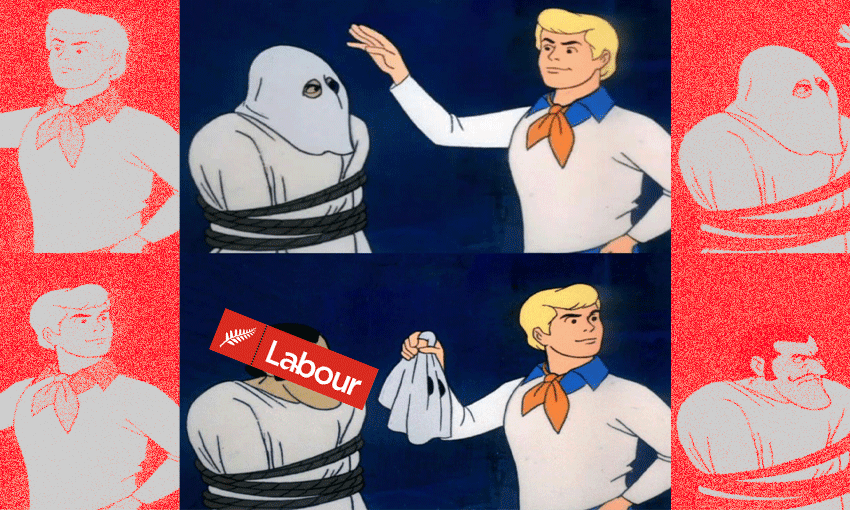Labour in opposition will be shocked to learn which party had six years in power but squandered any chance to make real change.
Grant Robertson’s valedictory speech was a predictably entertaining trip down memory lane. The acid-tongued incoming Otago University chancellor administered a sick burn to the coalition government. He talked about the time Lockwood Smith called Carmel Sepuloni Sepul Carmeloni. But in the middle there was a familiar lament: New Zealand’s tax system, he said, is “unfair and unbalanced”. “We are almost alone in the OECD in terms of not properly taxing assets and wealth in some form. Our current system entrenches inequality. It’s not my place any longer to say specifically what the answer is here, but I do know that the answers are out there.”
It’s hard to argue with him. Our efforts to tax capital are so lax that the IMF, which isn’t widely known as a leftist organisation, has taken to calling us out for overburdening workers and giving the rich a free pass. Recent IRD research found the wealthiest New Zealand families pay a median effective tax rate of around 9.4% – just over half that of someone on minimum wage.
Given that, Robertson will be vexed to hear that a recent left-leaning government did little to change those tax settings, even after it won a historic and likely irreproducible MMP majority.
He’ll be frustrated that the finance minister from that administration repeatedly shot down calls to enact a broad-base capital gains tax, telling Alice Snedden on Bad News it would mean they “burn very brightly as a government for three years and then disappear into the wilderness”, apparently fearing that making radical changes could sink the party’s vote as low as 26.91%.
He will be absolutely apoplectic at the news that the finance minister in question was in fact him.
Robertson isn’t the only Labour figure who seems to have forgotten Labour was, until quite recently, in power. His party’s leader Chris Hipkins has also come to the conclusion our tax system is “inequitable”, “unsustainable” and “broken”, telling party faithful that “people with multiple investment properties are getting huge tax breaks while those on salary and wages pay tax on every dollar they earn”. Hipkins will be horrified to learn of the actions of one former prime minister, who vowed no government he led would ever introduce a wealth or capital gains tax.
It’s not just tax though. The aforementioned Sepuloni blasted the coalition government’s move to crank up the number of sanctions handed out to beneficiaries, telling reporters that “people deserve to be supported into meaningful, long-term employment, and sanctions will not do this.”
She will be pained at the news a recent government had the opportunity to end benefit sanctions and declined to do so. Not only that, it commissioned a report on how to make the welfare system more fair and effective, then failed to fully enact any of its 42 recommendations. Sepuloni will be most gutted of all to hear she was that government’s deputy prime minister.
Another high-profile member of that government, Phil Twyford, has come out swinging against immigration settings binding migrant workers to employers, observing they’ve created an environment that’s ripe for exploitation. He also took aim at the accredited employer work visa system, which he said “clearly needs change”. Twyford will be angry at the author of that system, the sixth Labour government, for failing to overhaul immigration when it had a majority.
In these politicians’ defence, these policy areas – while impactful – haven’t always been the subject of extensive media coverage. They might not have known what Labour was up to.
The same can’t be said about light rail. Everyone knows Labour came to power in 2017 promising rail to the airport, and left power in 2023 without laying a single metre of track.
Everyone, that is, except the official Labour Twitter account. It jabbed prime minister Chris Luxon for saying we should be like Estonia, pointing out its capital Tallinn has a light rail system.
Of course, so too would Auckland if a certain former government had simply approved the one AT had ready to go ahead in 2017 instead of seeing six seductive PowerPoint slides and immediately deciding to spend five years crafting $228 million worth of business cases instead.
Talk to some Labour members, and they’ll agree there’s a gulf between their party today and their party a year ago. They’ll point out it’s likely to pass resolutions on things like tax and housing at this year’s conference which it wouldn’t have dreamed of legislating when it was in power. It can feel like there are two Labours — Labour in government and Labour in opposition.
Those two parties don’t always seem to have that much in common. Labour in government fears backlash from landlords and special interest groups for the wealthy. Labour in opposition talks about how capitalism has been a blatant failure for the poor. Labour in government triangulates its policies to offend the fewest possible people and ends up pleasing no one. Labour in opposition spends less time wringing its hands over electoral prognostications and more asking what will be effective. Labour in government is cautious to the point of paralysis. Labour in opposition is more willing to try winning an argument and slightly less afraid of losing one. It knows structural problems need structural solutions. It wants to take decisive action. It can even be a bit bold. Perhaps Labour in government, if it ever returns, could follow its lead.

